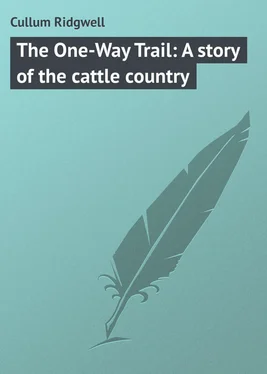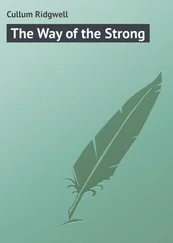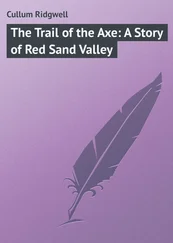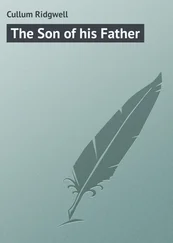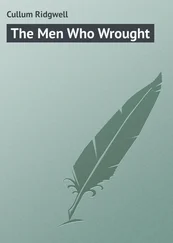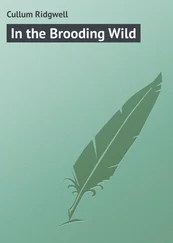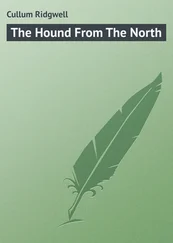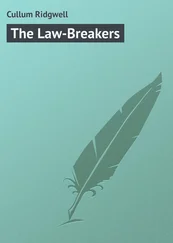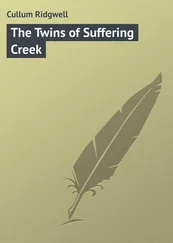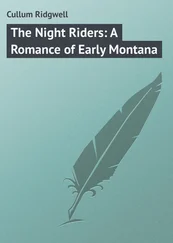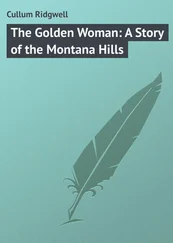Ridgwell Cullum - The One-Way Trail - A story of the cattle country
Здесь есть возможность читать онлайн «Ridgwell Cullum - The One-Way Trail - A story of the cattle country» — ознакомительный отрывок электронной книги совершенно бесплатно, а после прочтения отрывка купить полную версию. В некоторых случаях можно слушать аудио, скачать через торрент в формате fb2 и присутствует краткое содержание. Жанр: foreign_prose, foreign_adventure, на английском языке. Описание произведения, (предисловие) а так же отзывы посетителей доступны на портале библиотеки ЛибКат.
- Название:The One-Way Trail: A story of the cattle country
- Автор:
- Жанр:
- Год:неизвестен
- ISBN:нет данных
- Рейтинг книги:4 / 5. Голосов: 1
-
Избранное:Добавить в избранное
- Отзывы:
-
Ваша оценка:
- 80
- 1
- 2
- 3
- 4
- 5
The One-Way Trail: A story of the cattle country: краткое содержание, описание и аннотация
Предлагаем к чтению аннотацию, описание, краткое содержание или предисловие (зависит от того, что написал сам автор книги «The One-Way Trail: A story of the cattle country»). Если вы не нашли необходимую информацию о книге — напишите в комментариях, мы постараемся отыскать её.
The One-Way Trail: A story of the cattle country — читать онлайн ознакомительный отрывок
Ниже представлен текст книги, разбитый по страницам. Система сохранения места последней прочитанной страницы, позволяет с удобством читать онлайн бесплатно книгу «The One-Way Trail: A story of the cattle country», без необходимости каждый раз заново искать на чём Вы остановились. Поставьте закладку, и сможете в любой момент перейти на страницу, на которой закончили чтение.
Интервал:
Закладка:
He was a quaint figure, a figure to draw sympathy and pity from the hardiest. He was precisely four feet high. One leg was shorter than the other, and the hip was drawn up in a corresponding manner. His chest was sunken, and his back was hunched, and he carried his head bent sideways on his shoulders, in the inquiring attitude one associates with a bird.
He was his sister’s sole charge, left to her, when much younger, by their dying mother. And the girl lavished on him all the wealth of a good woman’s sympathy and love. She saw nothing of his faults. She saw only his deplorable physical condition, and his perfect angel-face. His skin and complexion were so transparent that one could almost have counted the veins beneath the surface; the sun had no power to burn that face to the russet which was the general complexion among prairie folk. His mouth had the innocence of a babe’s, and formed a perfect Cupid’s bow, such as a girl might well be proud of. His eyes were large, inquiring and full of intelligence. His nose might have been chiseled by an old Greek sculptor, while his hair, long and wavy, was of the texture and color of raw silk.
He was certainly the idol of Eve’s heart. In him she could see no wrong, no vice. She cherished him, and served him, and worked for him. He was her life. And, as is only natural, he had learned to claim as his right all that which out of her boundless affection it was her joy to bestow.
Suddenly the yelping of the pup brought Eve round on him again. He was once more holding it aloft by its tail. The girl darted to its rescue, and, instantly, Elia released his hold, and the poor creature fell with a squelching sound upon the ground. She gave a little scream, but the boy only looked on in silent fascination. Fortunately the poor pup was only badly shaken and hastily crawled away to safety. Elia was for recovering it, but Eve promptly vetoed his design.
“Certainly not, you cruel boy,” she said sharply. “You remain where you are. You can tell me about the chicken killing down at Restless’s.”
In the interest of the subject on which Eve desired information Elia forgot all about the pup. He offered no protest nor made the least demur, but forthwith began his story.
“Sure I will,” he said, with a curious, uncanny laugh. “Old Ma Restless is just raving her fat head off. I was around this morning and heard her. Gee! She was sayin’ things. She was cussin’ and cussin’ like mad. So I jest turned in the yard to see. It was just as funny as a circus. She stood there, her fat sides all of a wabble, an’ a reg’lar waterfall pourin’ out of her eyes. He! He! But what made me laff most was to see those checkens around her on the ground. There was ten of ’em lying around, and somebody had choppened off all their heads. Say, the blood was tricklin’, an’–well, there, you never did see such a mess. It was real comic, an’ I–well, to see her wringin’ her fat hands, and cussin’. Gee! I wonder she wasn’t struck for it, an’ her a woman an’ all.”
He laughed silently, while his sister stared at him in amazement.
Finally she checked his amusement sharply.
“Yes? Well?”
“Well, then she see me, an’ she turned on me like a wildcat, an’ I was ’most scairt to death. She said, ‘What you doin’ here, you imp o’ Satan? Who’s done this? Tell me! Tell me an’ I’ll lay for ’em! I’ll shoot ’em down like vermin.’ I knew she wasn’t really talkin’ to me, so then I wasn’t scairt. She was jest blowin’ off steam. Then I got around an’ looked close at ’em–the checkens, I mean–and I see just where the knife had cut their necks off. It was an elegant way of killing ’em, and say, how they must have flapped around after they’d got clear of their silly heads.” He laughed gleefully again. “I looked up after that and see her watchin’ me. Guess her eyes was kind of funny lookin’, so I said, ‘You don’t need to take on, mam,’ I said. ‘They’ll make elegant roasts, an’ you can get busy and hatch out some more.’ And somehow she got quiet then, and I watched her gather them checkens up, an’ take ’em into the house. Then when she came out an’ see me again, she says, ‘Light you right out o’ here, you imp o’ Satan! I fair hates the sight o’ you.’ So I lit out. Say, Eve,” he added, after a reflective pause, “why does folks all hate me so much?”
The girl sighed and shook her head. Then she came over to him, and, bending down, kissed his fair waving hair.
“Never mind, dear. I don’t hate you,” she said. “Perhaps it is you offend folks somehow. You know you do manage to upset folks at times. You seem to say–say queer things to them, and get them mad.” She smiled down upon the boy a little wistfully. She knew her brother was disliked by most in the village, and it pained her terribly that it should be so. They tried to be outwardly kind to him, but she always felt that it was solely for her sake and never for his. As Elia had never spoken of it before, she had lived in the hope that he did not understand their dislike. However, it was as well that he should know. If he realized it now, as he grew older he might endeavor to earn their good-will in spite of present prejudice.
“Guess it must be, sis. You see I don’t kind of mean to say things,” he said almost regretfully. “Only when they’re in my head they must come out, or–or I think my head would jest bust,” he finished up naively.
The girl was still smiling, and one arm stole round the boy’s hunched shoulders.
“Of course you can’t help saying those things you know to be true–”
“But they most generally ain’t true.”
The innocent, inquiring eyes looked straight up into hers.
“No,” he went on positively, “they generally ain’t. I don’t think my head would bust keepin’ in the truth. Now, yesterday, Will Henderson was down at the saloon before he came up to see you. He came and sort of spoke nice to me. I know he hates me, and–and I hate him worse’n poison. Well, he spoke nice to me, as I said, an’ I wanted to spit at him for it. And I jest set to and tho’t and tho’t how I could hurt him. And so I said, right out before all the boys, ‘Wot for do you allus come hangin’ around our shack? Eve’s most sick to death with you,’ I said; ‘it isn’t as if she ast you to get around, it’s just you buttin’ in. If you was Jim Thorpe now–’”
“You never said all that, Elia,” cried Eve, sternly. All her woman’s pride was outraged, and she felt her fingers itching to box the boy’s ears.
“I did sure,” Elia went on, in that sober tone of decided self-satisfaction. “And I said a heap more. And didn’t the boys jest laff. Will went red as a beet, and the boys laffed more. And I was real glad. I hate Will! Say, he was up here last night. Wot for? He was up here from six to nigh nine. Say, sis, I wish you wouldn’t have him around.”
Eve did not respond. She was staring out at the rampart of hills beyond, where Will worked. She was thinking of Will, thinking of–but the boy was insistent.
“Say, I’d have been real glad if it had been Jim Thorpe. Only he don’t come so often, does he? I like him. Say, Jim’s allus good to me. I don’t never seem to want to hurt him. No, sure. Jim’s good. But Will– Say, sis, Will’s a bad lot; he is certain. I know. He’s never done nuthing bad, I know, but I can see it in his face, his eyes. It’s in his head, too. Do you know I can allus tell when bad’s in folks’ heads. Now, there’s Smallbones. He’s a devil. You’ll see it, too, some day. Then there’s Peter Blunt. Now Peter’s that good he’d break his neck if he thought it ’ud help folks. But Will–”
“Elia,” Eve was bending over the boy’s crooked form. Her cheek was resting on his silky hair. She could not face those bland inquiring eyes. “You mustn’t say anything against Will. I like him. He’s not a bad man–really he isn’t, and you mustn’t say he is. Will is just a dear, foolish Irish boy, and when once he has settled down will be–you wait–”
Читать дальшеИнтервал:
Закладка:
Похожие книги на «The One-Way Trail: A story of the cattle country»
Представляем Вашему вниманию похожие книги на «The One-Way Trail: A story of the cattle country» списком для выбора. Мы отобрали схожую по названию и смыслу литературу в надежде предоставить читателям больше вариантов отыскать новые, интересные, ещё непрочитанные произведения.
Обсуждение, отзывы о книге «The One-Way Trail: A story of the cattle country» и просто собственные мнения читателей. Оставьте ваши комментарии, напишите, что Вы думаете о произведении, его смысле или главных героях. Укажите что конкретно понравилось, а что нет, и почему Вы так считаете.
